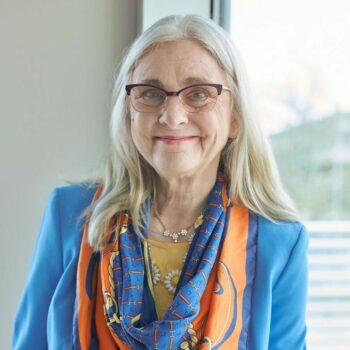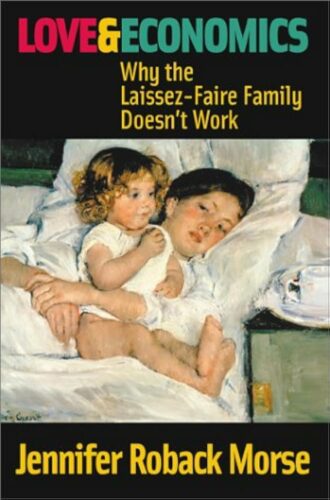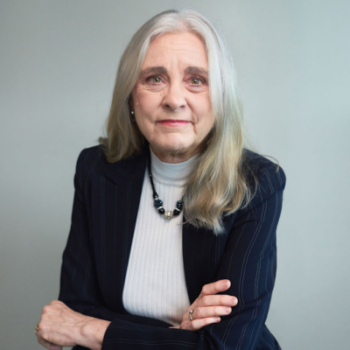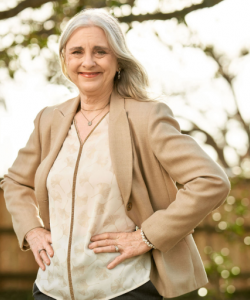Back in her days on track for tenure at George Mason University, Professor Jennifer Roback Morse advocated libertarian economics that included legalized prostitution. But when she struggled with childlessness, she returned to faith and learned God’s economics – emphasizing the family.
“Women need a different career path. What’s a typical career path for a man shouldn’t be the typical career path for a woman,” she says on a Lila Rose video. “Society has been shaped by a certain vision of feminism: equality and you don’t really need a man. The mommy track (should not be) a disgrace.”
Now 71, Morse doesn’t show signs of strain related to the firestorm she’s faced from Cancel Culture. Her struggles to have a child and raise a child made her realize the free-wheeling economics of the Sexual Revolution got everything wrong. Family operates under different economic rules; you can’t enter marriage with a consumerist mentality, she says.
Morse got her baccalaureate in economics from Ohio State University. She was drawn to the Adam Smith ideals of free market without government interference, where producers are rewarded for giving consumers what they want.
Unconsciously, she followed the tenets of the Sexual Revolution. Her views of economics played in: You can enjoy sex purely as a consumer, for pleasure only, neither for procreation nor for parenting. She was submerged so deeply into consumer-based economics that she even advocated for legalized prostitution.
She married, divorced, and got an abortion.
 “I regretted it right away,” she told National Review about the abortion. “I had night terrors and anniversary anxiety. I went to counseling, but none of the counselors said that maybe the abortion had something to do with my troubles.”
“I regretted it right away,” she told National Review about the abortion. “I had night terrors and anniversary anxiety. I went to counseling, but none of the counselors said that maybe the abortion had something to do with my troubles.”
She got her doctorate, re-married happily, and threw herself into teaching at Yale University for five years. “I was a dragon lady in the classroom,” she says. “My students were afraid of me.”
Eventually, she switched to George Mason University, following her mentor James Buchanan, who won the Nobel Prize in economics for his legendary public choice theory. She co-developed the Roback-Rosen model in urban economics.
After 11 years of teaching and close to being fully tenured, Jennifer told her husband: “Honey, it’s time to start a family.”
With her strong economics outlook based on satisfying consumer wants, she even planned when to get pregnant. She would give birth during summer so that she could hand off childcare to a facility and return to teaching in the Fall without skipping a beat.
It didn’t work out.
“I was a participant in the Sexual Revolution,” she says, which means sex on your terms. “I knew several other women professors who didn’t miss a day of work. You’re supposed to be this tough Superwoman. Imagine my surprise when the baby didn’t come on time.”
A visit to the doctor raised a terrible specter: she was infertile. She had wanted it all: the career, the success, the fame. And she wanted to fit children into that framework. Now, she wondered, would she ever have a child at all? Suddenly the importance of all the worldly attainments paled.
The nightmare of being childless lasted four years.
“It was the first time I couldn’t get what I wanted by working harder,” she says. Just walking down the shopping aisle and seeing items for children was a torture.
She returned to her Catholic upbringing. The priest at confession understood her nightmares over the abortion and counseled her into self-forgiveness and inner healing, she says.
After four years, Morse and her husband adopted a child from Romania in 1991.
As often happens, just when the adoption comes through, she got pregnant. She gave birth to a daughter in due time.
More wrenches were thrown into the works. Raised in an orphanage, her son didn’t bond with them. He hadn’t been cuddled, and he resisted Mom’s affection. Kids who haven’t been cared for wind up not caring; they become sociopaths, Morse found out. She tried to put him in day care while she continued her career.
“He flunked out of daycare,” she jokes.
She realized she needed to be home for her kids; she couldn’t outsource parenting.
Just then, her husband, an engineer, was offered an attractive job in the San Francisco Bay Area. “Let’s get out of here,” she said, and they left the Washington D.C. area.
From notoriety in economics Morse went to anonymity as a mom in 1996. Her journey made her rethink her economics, and she realized that the economic framework of society works best with a solid family structure of both a mother and father. She realized that the family is for the best of the children, not for the desires and wants of parents.
 Her new thinking became the subject of a book Love & Economics Why the Laissez-Faire Family Doesn’t Work published in 2001.
Her new thinking became the subject of a book Love & Economics Why the Laissez-Faire Family Doesn’t Work published in 2001.
“Mom, what you’re doing with your baby when you’re home is something amazing and important that literally no one else can really do it as well as you,” she says. “Without strong families, you can’t have free markets or limited government.
“The family has to come first. You can have only one first priority.”
She worked for the Hoover Institution part time as a research fellow. Seeing the vast need, she and her husband volunteered as foster parents. They fostered eight children.
As her children grew up, she found herself with more time. Her son overcame his attachment issues and adjusted normally. She founded the Ruth Institute in 2008 to advocate for a different feminist model, one that lionized motherhood over career.
“I wanted to warn them about the careerist trap,” she says. “It’s okay to get married, stay married, and do something later. You don’t have to get on the career bandwagon.”
If both mother and father work together for the best of the children, the mother can put her career on hold while she raises the children. When Morse’s husband retired, her career as an advocate for family took off.
Morse became the de facto spokeswoman for California’s 2008 Proposition 8, which simply stated “Only marriage between a man and a woman is valid or recognized in California.” The measure passed the state’s electorate but was overturned by the California Supreme Court.
In 2013, the extreme left Southern Poverty Law Center branded the Ruth Institute as a hate group hostile to LGBTQ. Facing the fury of Cancel Culture, she was nonplussed. “If fighting sex abuse, pornography and divorce makes us a hate group, so be it,” she responded.
 In 2017, Global Cloud Xchange halted payments for the Ruth Institute. “The organization has been flagged by Card Brands as being affiliated with a product/service that promotes hate, violence, harassment and/or abuse,” Global Cloud Xchange stated.
In 2017, Global Cloud Xchange halted payments for the Ruth Institute. “The organization has been flagged by Card Brands as being affiliated with a product/service that promotes hate, violence, harassment and/or abuse,” Global Cloud Xchange stated.
Under pressure, Morse stiffened her back and kept touting truth.
“You cannot build a society around the idea that kids don’t need their parents,” she says. “Men and women are actually different and you can try to suppress that all day long, but it’s still going to pop up. What you’re seeing is a lot of propaganda to keep the idea propped up.
“If you organize society around nature and reality, that will reinforce itself.”
To learn more about a personal relationship with Jesus, click here.
About these writer: Michael Ashcraft reported from Los Angeles where he pastors the Lighthouse Church in Van Nuys, CA.




